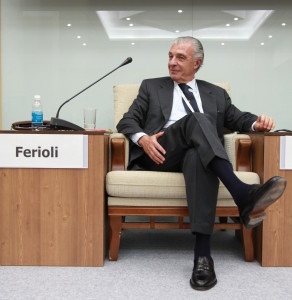But the region’s energy wealth is unevenly distributed and has enormous untapped potential, said panel moderator José Antonio Vargas Lleras, Vice Chair of Latin American and the Caribbean for the WEC.
Vargas and a panel of four experts and policymakers from Brazil, Argentina, Uruguay, and Venezuela discussed the challenges facing Latin America in an era of rising demand for energy. Some 40-50 million people lack access to electricity in the growing region, yet 22% of the region’s feasible hydropower production, for instance, remains untapped, he said.
The discussants presented their countries’ experiences, reviewed the challenges for the region, and offered solutions. For one, the region needs energy sector investments of around $1.5-2 trillion over the next 20 years, training more technical specialists, initiatives to foster innovation, and a smaller amount of energy consumed per unit of GDP, explained Luis Enrique Berrizbeitia, Executive Vice President of CAF - Development Bank of Latin America. He added that there are “enormous advantages” to integrating the regional power system effectively, such as tapping into the complementary hydrological behavior between the Amazon and Andrean basins. “We can minimize or at least reduce the amount of local reserve requirements if we are integrated more effectively,” he said.
Ramon Mendez, the Secretary of Energy of Uruguay, reviewed the challenges in his country’s energy sector. Because Uruguay has already tapped into its major rivers for hydropower and does not have coal resources, he said, “We have only two possibilities, either to continue importing fuels and resources, or we have to face seriously our non-traditional renewable resources.” Uruguay has chosen the latter path, and now plans to attain more than 50% of the primary energy mix from renewable sources by 2015.

This news story is based on the Regional Crossroads session, “Latin America and the Caribbean:
Blessed with resources, overwhelmed by choice?”, at the 2013 World Energy Congress.





